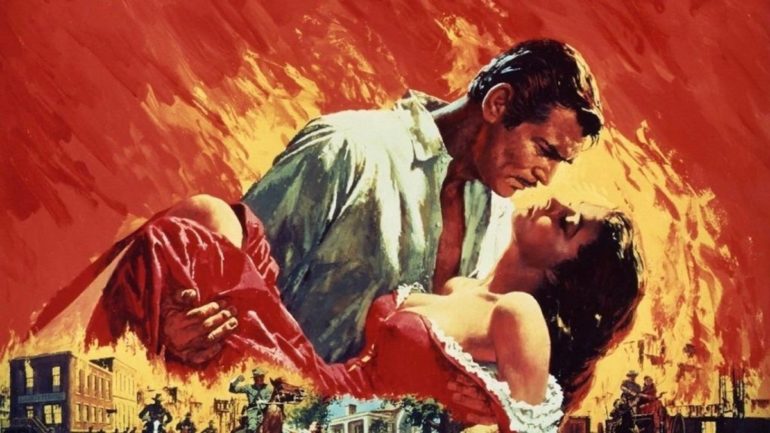The past week in media news has been a litany of older works being pulled from streaming services for racially questionable content – at the time of writing the most recent casualty was the 1939 film Gone With The Wind, and Amazon is teasing the idea that it may have The Dukes Of Hazzard in its crosshairs.
Many have likened this censorship to a George Orwell-style memory-holing, but this isn’t quite accurate. What has happened in all these cases is that the offending works have been taken out of distribution by a few specific outlets, rather than systematically destroyed and rendered damnatio memoriae. They’re almost invariably available elsewhere (Gone With The Wind, in particular, is already in the public domain in some countries), and in many cases, their DVDs have seen a spike in sales following the news in a classic demonstration of the Streisand effect.
Further, where the works have been pulled, in many cases there are plans to restore them with a brief disclaimer about them being products of their time, much like Looney Tunes’s infamous ‘Censored Eleven’, whose preamble notes “These cartoon are being presented as they were originally created, because to do otherwise would be the same as claiming these prejudices never existed”. This compromise appears to have satisfied everyone – when’s the last time you heard about these controversial old cartoons, other than as a reference point in a discussion of censorship?
One of the most condemned examples was the BBC-owned streaming service UKTV pulling an episode of the 1970s farce Fawlty Towers, whose star and creator John Cleese himself chimed in to criticise the decision, describing the ‘marketing people and petty bureaucrats’ behind the move as ‘cowardly and gutless and contemptible’.
What’s made this example so inflammatory is that the episode in question is one of the most beloved of a generally beloved show – and that while it used slurs, this was to poke fun at racist attitudes rather than to endorse them. The actual context makes this perfectly clear, being that comedy reliable of an old person saying something which is now deeply inappropriate and politically incorrect.
(UKTV has since confirmed it will restore the episode – and it has remained available on Netflix the whole time.)
Perhaps less defensible are David Walliams and Matt Lucas’s catchphrase-based sketch shows Little Britain and Come Fly With Me, both of which made quite promiscuous use of blackface – something both Walliams and Lucas have since expressed regret for. Little Britain was in a way the most prominent example of this wave of censorship, having been removed from three separate streaming services, Netflix, BBC Iplayer, and Britbox – though, as ever, it is still available elsewhere.
This whole mess has of course come alongside two weeks of Black Lives Matter protests following the death of George Floyd – but those protests were about police brutality, not the media. There have been no public demands that any of the offending works be pulled, and the response to their censorship has been near-universal condemnation.
One could argue that the streaming services corporations responsible for this censorship are pre-emptively responding to the culture of political correctness – and Orwell had a quote for this, too. Make no mistake, this is the definition of there being a chilling effect at work upon freedom of speech, and it is right that it be protested. But (particularly since there were no actual calls for these works to be censored) the buck must stop with the corporations – it was their decision to pull these works, and ultimately their responsibility.
And given that they are corporations, then this censorship was first and foremost a business decision – a misfired attempt to appear anti-racist. Suggesting they were actually adhering to the principle of anti-racism would be wrong, because principle clearly did not enter into the decision to pull these works. Rather, it was a series of spur-of-the-moment, follow-the-leader decisions, made in poorly thought-through response to the popular trends of the day.
Not too long ago we saw this same dynamic play out with the episode of The Simpsons starring Michael Jackson: unilaterally pulled from circulation, not because of any new revelations about the late star, but because Netflix had just released a new documentary about his alleged crimes. Though the current examples could be laid at the door of the political correctness brigade, here we see the truth – that censorship is a fickle beast, and what is and is not censored is basically arbitrary.
(For instance, a lot of people have cried hypocrisy in that It’s Always Sunny In Philadelphia has been censored for using blackface satirically, while Tropic Thunder has not.)
More than anything else, though, consider this: the censorship, contemptible though it may be, has not worked. People received the news with, at best, scorn, and in many cases the streaming services listened and duly reversed their decisions. Given how these works have seen a whole new lease of life since being pulled – I point again to the Streisand effect – the profit motive dictates that their absence from the listings will likely not last too long.
Some of the coverage you find on Cultured Vultures contains affiliate links, which provide us with small commissions based on purchases made from visiting our site. We cover gaming news, movie reviews, wrestling and much more.



